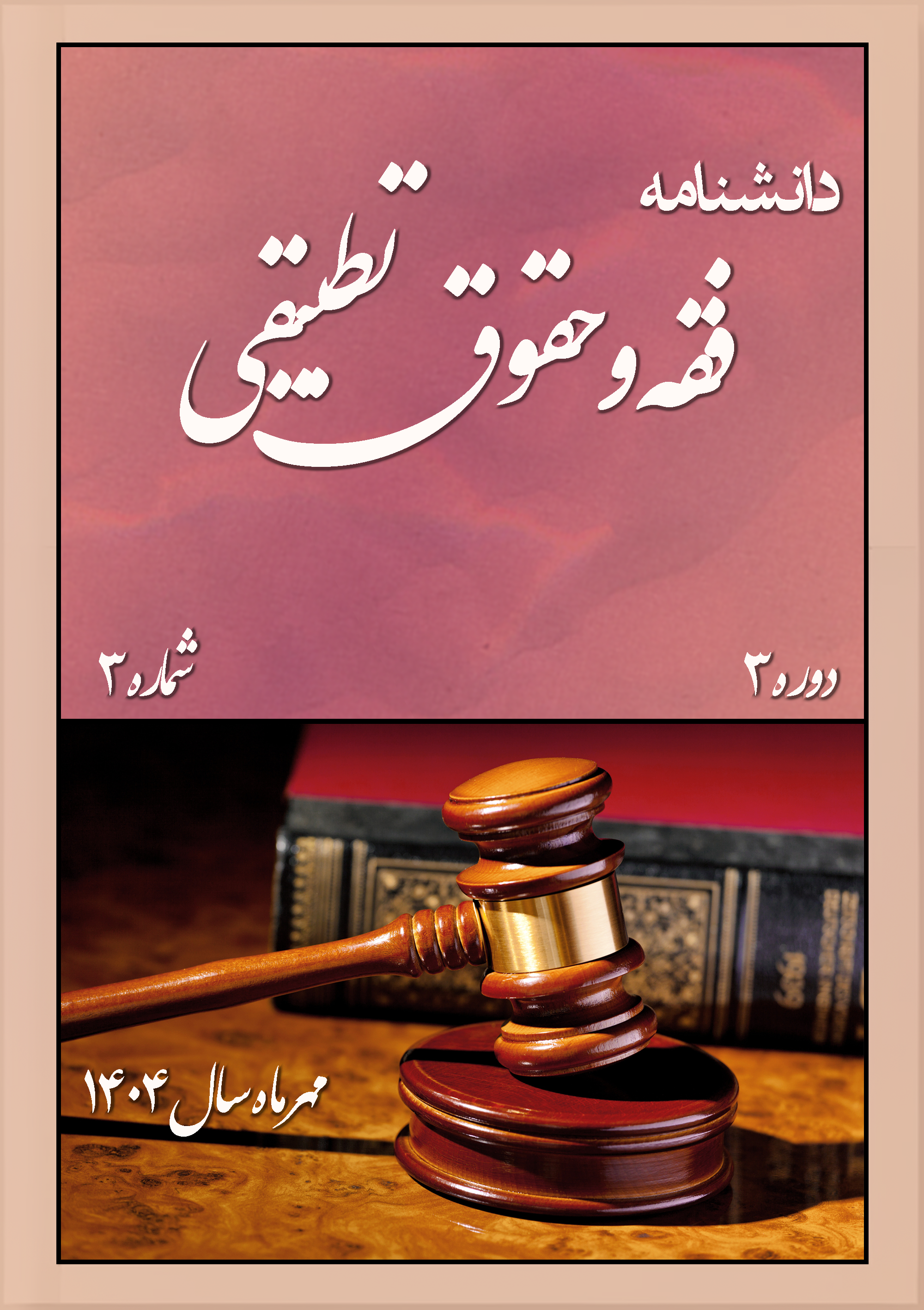Jurisprudential-Legal Examination of Profit Derived from Participation in Iran's Stock Exchange Market
Keywords:
capital market, partnership interest, stock exchange marketAbstract
This study aims to undertake a jurisprudential and legal analysis of the profits derived from transactions in the stock exchange market and to delineate the legal and religious boundaries governing them. Participation in the stock exchange market as a profit-generating platform has consistently attracted the attention of shareholders. In fact, the capital market serves as a space for generating returns, and the participation of shareholders in this market is primarily motivated by the pursuit of profit. This issue has prompted Islamic jurists and legal scholars to examine the capital market and the profit derived from stock market participation from both jurisprudential and legal perspectives. From the standpoint of Islamic jurists, there are two opposing views regarding access to the capital market and profit-sharing therein. Opponents consider profit from the stock market to be akl māl al-bāṭil (illegitimate gain) due to the lack of tangible effort involved, with some scholars declaring such profits as religiously impermissible. On the other hand, proponents argue that access to such profits is legitimate based on the jurisprudential principle of bayʿ mā lam yuqbaḍ (sale of unreceived property), emphasizing its permissibility. From a legal perspective, jurists regard access to these profits through brokerage services as permissible and consider it a legitimate form of economic activity. Transactions in the stock exchange are categorized as commercial transactions, for which the traditional regulations of civil law fail to provide adequate legal solutions. These transactions are exclusively executed through brokers, who act as representatives of the parties and facilitate transactions on their behalf. Stock exchange transactions are governed by fundamental principles, including the principle of competition, the principle of information transparency, the prohibition of insider trading, and the principle of regulatory oversight. The distinctive features of stock exchange transactions and markets have rendered general rules of civil law and other existing regulations insufficient for regulating such transactions. In other words, the significant differences between stock exchange transactions and conventional contracts necessitate the establishment of specific rules and principles to govern the former. Securities trading in the over-the-counter (OTC) market is classified as a formal and binding contract. However, the application of contract termination options (khiar) in these transactions has been subject to debate due to the unique execution and settlement procedures of securities compared to traditional transactions. Risk-hedging methods are mainly implemented either through specific transactions or through proper capital management. Simultaneously, the overarching presence of jurisprudential and legal considerations in the capital market underscores the necessity of closely examining the nature of these contracts.
Downloads
References
Katouzian, N. (2006). Specific Contracts. Tehran: Public Publishing Company.
Masjed Saraei, H. (2019). Legal-Religious Analysis of the Basis of Gharar in Insurance. Quarterly Journal of Islamic Jurisprudence and Law Research(33).
Mirzaie Qomi, A. b. M. H. (1994). Comprehensive Responses to Questions. Tehran: Keyhan Institute.
Misbahi Moghadam, G. R., & Ismail Rostamzadeh, G. (2018). Gharar in Options Transactions on Stocks from the Perspective of Imamiyah Jurisprudence. Quarterly Journal of Economic Studies.
Mo'men Qomi, M. (1999). The Place of Participation Bonds in the Islamic Economic System. Quarterly Journal of Knowledge.
Mohaghegh Damad, S. M. (1984). Principles of Jurisprudence in the Civil Section. Islamic Sciences Publishing.
Mohammadi, A. (2004). Foundations of Islamic Legal Interpretation. Tehran: University of Tehran.
Mousavi Bojnordi, S. M., & Shirazi, M. R. (2010). Ambiguity and the Necessity of Clarifying the Subject of the Transaction. Quarterly Journal of Jurisprudence and Legal Foundations.
Mousavian, S. A. (2013). The Jurisprudential Foundations of Money and Capital Markets and Their Applications. Quarterly Journal of Islamic Knowledge.
Mousavian, S. A., & Hassan Bahari, G. (2013). Jurisprudential Foundations of Islamic Financial Instruments. Tehran: Imam Sadiq University Publications.
Nazarpour, M. N., Mohammad Reza Yousefi Sheikh, R., & Meimanat, E. (2011). Investigating the Indicators of Prohibition of Gharar in the Performance of Interest-Free Banking in Iran: A Case Study of Tejarat Bank in Mashhad. Quarterly Journal of Islamic Economics.
Pir Hadi, M. R. (2017). Contingent Contracts with Emphasis on Contingent Sale. Journal of Free Legal Research(5), 1-1.
Saleh Abadi, A. (2003). Stock Trading in the Stock Market from an Islamic Perspective. Quarterly Journal of Religion and Communications(20), 1-1.
Soleimani, M. (2010). The Foundations of Risk-Taking in Transactions in Iranian Civil Law Government Thesis, Payame Noor University, Ministry of Science, Research and Technology].
Soltani Ramazani, H. (2006). Examining Gharar Transactions in Investment Companies. Journal of the Stock Market(60).
Taskhiri, M. A. (2007). The Religious Foundations of Islamic Securities (Sukuk). Quarterly Journal of Islamic Economics(27).
Taskhiri, M. A. (2016). The Evidence Against Gharar and Its Impact on Transactions. Biannual Journal of Comparative Jurisprudence(1).
Vahdati Shabiri, H. (2000). The Unknown Nature of the Subject of the Transaction. Qom: Islamic Advertising Office Publications.
Downloads
Published
Submitted
Revised
Accepted
Issue
Section
License
Copyright (c) 2025 حسین بهدادفر, فرج الله براتی, علیرضا جرجرزاده, زینب درویشی (نویسنده)

This work is licensed under a Creative Commons Attribution-NonCommercial 4.0 International License.










